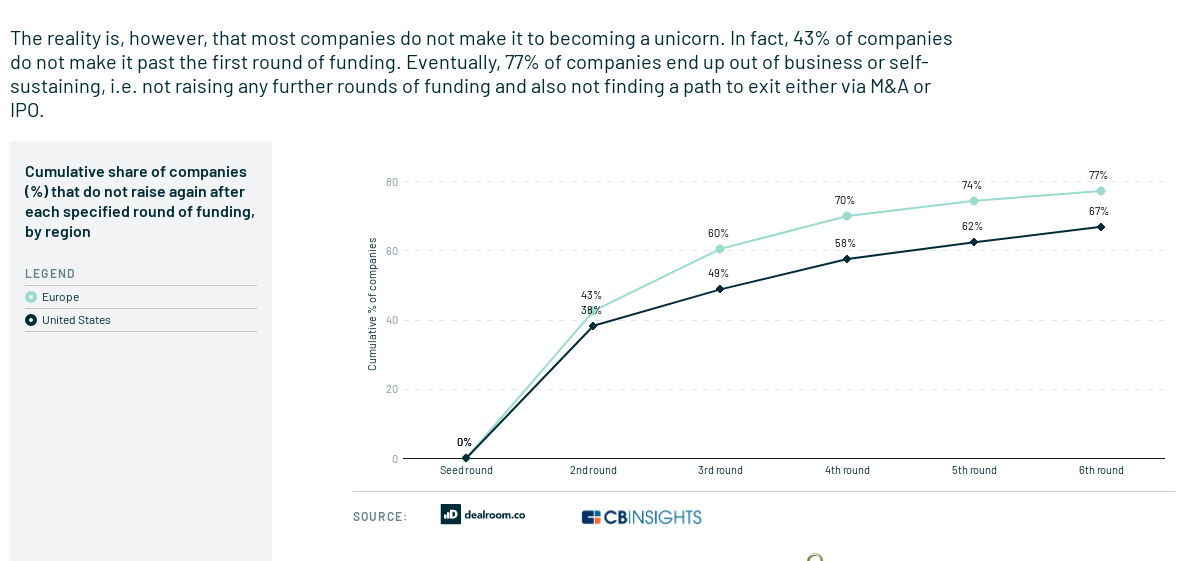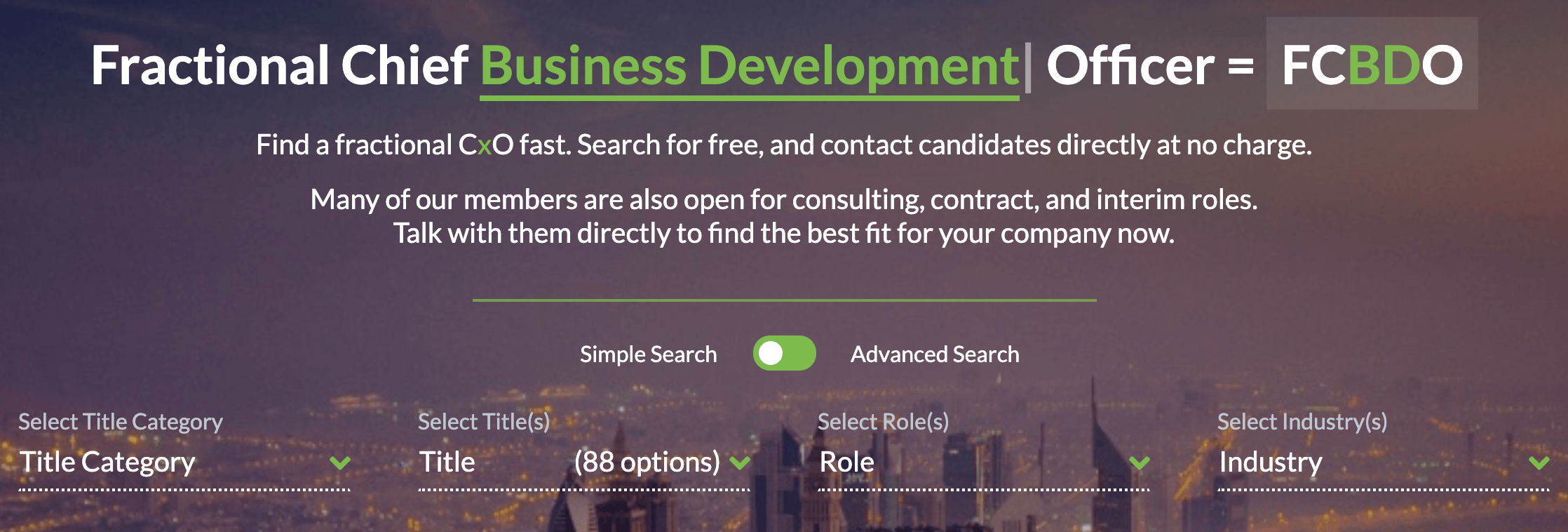Editor's note: this is a guest post from Nanditha Vijayaraghavan, who heads up marketing and growth initiatives at SaaS company Trusted Family.
European tech is having its moment in the global markets.
According to latest research on ‘The State of European Tech 2020’ from Atomico and partners, a company raising a seed round of funding in Europe currently has about a 1-in-a-100 chance of becoming a unicorn. That’s a promising fact to say the least.
However, the reality is that most of these European companies fail to become a unicorn with nearly 43% of them not making it past the first round of funding.

Interestingly, while European founders move through their own unique company journeys across different stages of growth, they all seem to struggle with one common challenge: people.

This is a particularly crucial need for European companies that have raised seed investment and are now looking to throttle their way towards a solid A round. The main people-related challenge these founders are facing today is how to build the ideal C-level team in order to support their ambitious business goals with minimal impact to their bottom line.
Despite the rich and accessible talent pool in European tech, limited bandwidth and visible budgetary constraints for founders in this phase often pose a frustrating challenge in finding the best-fit senior leaders to come aboard in the shortest time, and in the most cost-effective way possible.
Founders are essentially looking for rockstar C-leaders (irrespective of the function), who can render unmatched years of domain expertise and marry their strategic vision with results-driven execution, all at an affordable cost. Enter, fractional executives.
A fractional executive is unlike any freelancer or a consultative executive. These experts can come into startups (often irrespective of the growth stage) in order to manage significant portfolios by providing a “fraction” of their professional time and eliminating the need for long-term full-time employee commitments, and high-end C-level compensations.
They come seasoned with their best-of-breed network connections, years of domain expertise as well as the corporate experience of having led and managed large international organisations.
With the very definition of 'fraction' in mind, here are two reasons why early-stage European startup founders might want to consider hiring a team of fractional C-suite executives, depending on their business priorities:
1) Time: The initial 12-18 months are pivotal for a first-time founder and/or founders looking to grow their company post the seed investment. At this juncture, they need to build a solid leadership team of highly experienced executives who can understand and mirror their vision, strategize with them and be prepared to get the ground running from day zero. Fractional executives fit the bill perfectly simply because they have been there and done that, several times, with varying degrees of company-building exposure and techno-commercial know-how.
2) Cost: One of the key C-level positions that most early stage founders want to hire is the Chief Financial Officer (CFO). However, with nearly 66% of Europe’s early-stage founders relying on self-financing for funding their business, hiring a regular full-time CFO at an industry average annual compensation of approximately $250,000 (roughly $129,000 in annual salary, plus benefits), is not the most financially viable solution. Alternatively, a fractional CFO can provide the founder with all the strategic guidance necessary to thrive and scale but at a significantly lower cost.

Alternatively, a fractional CFO can provide the founder with all the strategic guidance necessary to thrive and scale but at a significantly lower cost. Even at $250 per hour, a fractional CFO working roughly 20 hours per month would result in a significantly lower annual cost of $60,000. Despite the higher hourly rate, many of the key benefits of a full-time CFO can be extracted through a part-time arrangement at a far lower overall annual cost.

Global communities like GigX have put this model in place and are making it increasingly easy for early adopters to test the waters.The platform enables late-career leaders to register themselves as fractional executives and apply their previous domain expertise within a start-up, mid-market organization, or a larger enterprise, without a full-time work commitment.
This is particularly lucrative for European retirees who have decades of experience across functions and still have decades left to be productive in the workplace. Today, at least one in five European adults expect to work past the traditional retirement age of 65 and among those who do, nearly half of them would do it by choice. Turning to a fractional gig role works as a great option for these executives where they enjoy the flexibility and fruits of fractional labor, but on their terms of time and availability.
The pandemic has cleared the air for many early-stage founders. Business is no longer usual. This also implies that the current conventional and predictable C-suite models will begin to be far-less impactful in driving tangible change in the startup success stories.
The European ecosystem is poised to benefit the most from this shift in thinking, with a new hybrid collective of C-suite executives; one that not only accelerates the growth engine for many early-stage companies but is also well-suited to balance the opportunities and risks of the next decade.
Featured image credit: Yibei Geng / Unsplash



Would you like to write the first comment?
Login to post comments